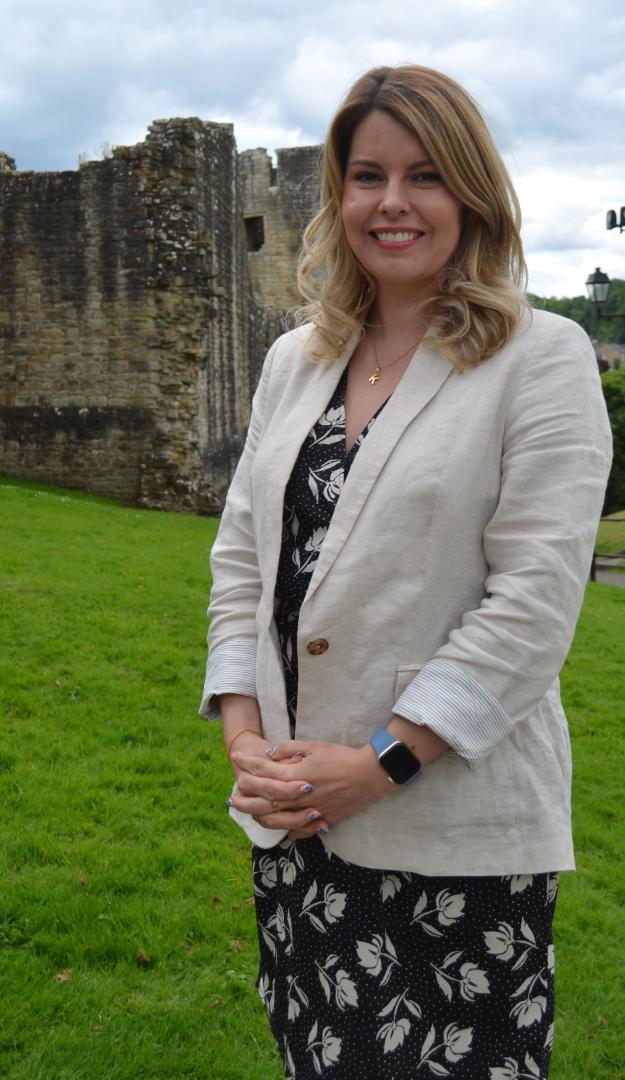The North East’s first regional mayor was in town last week and getting to grips with the role. She told editor Stuart Laundy it’s a big job …
IT might seem like ancient history given current events, but it’s just six weeks since we went to the polls to elect the region’s first mayor.
Labour’s Kim McGuinness polled almost 60,000 more votes than her nearest rival, the former North of Tyne mayor Jamie Driscoll on a turnout of just 31 per cent to take the post.
Forget the traditional image of a mayor – there are no chains of office and it’s highly unlikely you will spot Ms McGuinness cutting ribbons at garden fetes – this is a job that will affect the lives of everyone from Berwick-upon-Tweed to Bowes.
As regional mayor, she will take charge of public transport, tackling child poverty, boosting skills, attracting investment to the region and regeneration.
“It’s all of the responsibility and none of the jewellery,” jokes the mayor.
She says you are unlikely to find her behind her desk.
Last week she popped down to Barney on market day as part a busy day of activities and hopes that by being as visible as possible she will win over the majority of people who, for whatever reason, did not engage in the mayoral election. Ms McGuinness, 39, served on the city council in Newcastle, where she was born and brought up, before winning the vote to become police and crime commissioner for the Northumbria force.
She now lives in Northumberland with her husband David, a serving RAF officer and is, she says, an accidental politician.
“I never had any intention of standing for anything.”
She was persuaded to stand for the council by her local MP who impressed the importance of more women representatives with “life experience” .
Ms McGuinness said: “I love being a councillor – the case work and support I was able to provide to people and being an ambassador for your place.”
Having earned a place in the council cabinet as member for culture, sport and public health, she was persuaded to put herself forward for crime commissioner, succeeding Vera Baird in 2019.
She is now settling in to her biggest challenge as the region’s most senior politician.
“Forging our own future is really important. We can’t leave all of our decision making in Westminster. We are the furthest away from Westminster and Whitehall and I think you can tell.”
So what type of mayor does she intend to be?
“This is about listening to what people need and helping them feel empowered to make decisions and the mayor is a person they can ultimately get rid of if it doesn’t work.”
Durham County Council was the last of the seven local authorities involved to sign up to the devolution deal with the government which resulted in Ms McGuinness taking the mayoral position, but she is glad to have the county along for the ride.
“It has so much to offer. It has a really strong economic offer.
“I am really glad we are a constituency of seven local authorities, including County Durham.
“What I have seen where we have majors – such as Manchester and the West Midlands – is that these economies do better than other parts of the country. I hope that our region will be the same.”
Topping the new mayor’s list of priorities is public transport.
She made it plain on her first day in office that she planned to take bus services back under public control.
“The vast majority of public transport journeys are by bus but there has been a 30 per cent cut in services since 2010 – bigger in County Durham and Northumberland.
“It is urgent that we do something about that, but it takes time to bring buses back under public control.”
She promises a “massive consultation” to understand what people want from their buses.
“We have got to improve connections across the region. It should not be difficult to get from here (Barnard Castle) to Durham.
“One of the most common complaints I heard when I was stood in the Market Place in Barney was people don’t feel the bus network is good enough.”
Lifting children out of poverty is another issue high on the mayor’s list of priorities.
“We have got the highest level of child poverty in the country and that is a badge we wear that I want to rid us of very quickly.”
To do this, she intends to focus on child care, skills training – bringing it to communities rather than expecting people to travel for training – boosting high streets and “building the right homes in the right places” .
She is a mayor in a hurry.
“I want to be getting on quickly. I am very conscious this means nothing if people don’t feel the difference it makes to them.”
Mayor McGuinness is also aware she cannot do this without taking people with her, especially the leaders of the seven councils who are part of the deal.
“It is crucial we put place before party.
“I am a Labour mayor and hold those values, but the Labour Party would expect me to put place before party.
“We have got to work cross-party. We won’t get anything done if we don’t. You have got a Tory led council in Northumberland and in County Durham a coalition with a Lib-Dem leader. We are working very well together. We need to move on to the next stage of real devolution and that’s what we all agree on.”
She is also keen to dispel the misconception that “everything looks to Newcastle” .
“For a start, there are three cities, but this has got to be about the towns and villages as well as the cities.”






